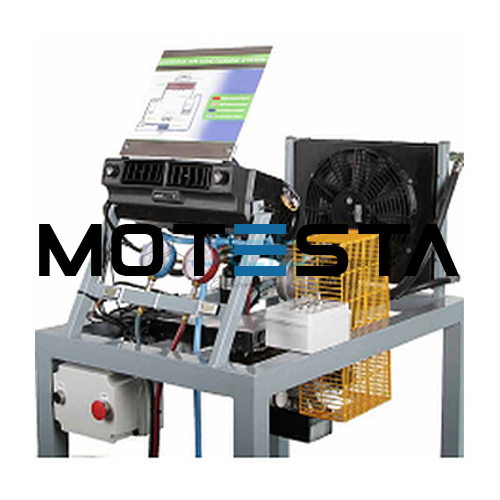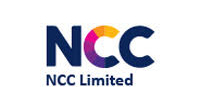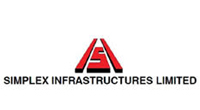Automobile Engineering Lab Equipments

Digital Learning Content And Software Package
Model No – MI-ALU-0036
Classroom Management System:-
Features:
Classroom Management System (CMS) should be new generation of software that assists teachers in utilizing and managing a computer multimedia lab or 1:1 classroom. It transforms traditional classrooms into educational platforms which allow students to develop 21stCentury skills and teachers to manage an ICT rich classroom without compromising the way they naturally would like to teach. CMS should utilize cutting edge features which allow for a broad range of learning techniques and communication methods, while harnessing features such as screen spying, broadcasting, computer/screen locking, file sharing, and many more to maximize earning effectiveness in a 21st Century classroom.
Specification:
CMS should support additional apps which are able to be purchased directly from the website provider administrator. While, not a comprehensive platform, these apps help educators who want to bring specific 21stCentury Elements into the classroom. Examples of these apps are:
Polling
Using any device, teachers will be able to immediately poll their students to get real time responses and assessment.
Digital Whiteboard
Teachers can use their device to replicate many of the same features as a digital whiteboard at a fraction of the cost. Now a teacher can use ICT in their demonstrations with minimal infrastructure.
Exam Creation: Teachers can build exams for students using exam authoring tools Exam Dissemination: Teachers can digitally disseminate exams to their students and retrieve them for automatic scoring.
Compatibility:
- Windows 7
- Windows 8
- Windows XP
- Linux
- Android mobile devices
- Local- Not online and No Server Needed
- Devices Control Features
- Learner Monitoring Features
- Device Sharing Features
- Utility Features
- Learner Features Summary
- Administration
- Differentiated Instruction
- Learning Management System (LMS)
Features:
The LMS should be a comprehensive education tool designed to enrich courses by embedding digital Content and assessments into traditional teaching and learning. A full suite of content creation tools is included to enable instructors and instructional designers to enhance their courses with customized digital content. Scheduling, communication, and web 2.0 tools allow multiple options for students and instructors to meet the diverse needs of learners in the 21st Century.
The LMS should incorporates many instructor friendly features which enable complete course delivery or supplemental course materials. Instructors are able to design their own curriculum, modify content, and import SCORM compliant modules for students to view. Instructors have complete control over content, assessment and grading scales. The LMS content delivery system tracks individual students’ progress as they are guided through technology rich curriculum, which enhances 21st Century Skill competency, in addition to ensuring students meet the required learning outcomes of the course. The LMS should be a versatile learning platform which supports 21st Century learning models such as blended learning, and flipping the classroom. This flexibility enables institutions to create the most valuable learning opportunities possible and to maximize student capacity for independent learning.
Specification:
WEB 2.2 Tools
Curriculum Development
Instruction Design
Content Delivery
Automotive and Transportation Technologies
The Digital Content for Vocational Learning provides extensive courses addressing core TVET areas. This digital content should be designed to meet the needs of students in the 21st Century by giving them opportunities to learn in alternative ways, “anytime- anywhereâ€. Content can be deployed on the Learning Management System or CD Rom. Elements of the content such as simulations or assessments can be deployed using the Classroom Management System for real-time learning with the content. In short, Digital Content for TVET should be designed to be used in a variety of situations.
The package is inclusive of:
- Theory Presentations
- Animations of principles
- Simulations for exploration
- Videos of real systems
- Lab Tasks for hands on exercises
- Investigations activities
- Quizzes to test students knowledge
- Assessments of learning objectives
E-learning package contents:
- Basic Engine Fundamentals:
- Engine Fundamentals
- Petrol Engine Combustion Cycle
- Petrol Engine Components
- Diesel Engine Combustion Cycle
- Diesel Engine Components
- Diesel Engine Combustion
- Fuel Delivery System
- Engine Cooling System
- Engine Lubrication System
- Valve Trains
Automotive Electrical and Electronic Systems
- Basic Automotive Electrical Circuits
- Ignition System
- Alternator
- Starting Motor
- Starting and charging Circuit
- Lighting Systems
- Electrical and Hybrid Vehicles
- Safety Restraining Systems (SRS)
Air Conditioning and Heating Systems
Automotive Air Con and Heating system
Manual Transmissions and Axles
Clutch System
Manual Transmission
Front Wheel Drive and Transaxles
Front Wheel Drive Systems
Four-Wheel-Drive Systems
Automatic Transmissions and Transaxles
Automatic Transmission Inspection and Refitting
Propeller Shafts and Differential Gear
Drive Shafts
Differential and Rear Drive Systems
Brake Systems
- Hydraulic Brake System
- Power Assisted Hydraulic Brake System
- Disc Brake System
- Drum Brake System
- Electronic Brake Systems
- ABS Procedures
- Traction and Stability Control
Steering and Suspension Systems
- Road Wheels and Tires
- Wheel Geometry
- Steering System
- Hydraulic Power Steering Systems
- Electric Power Steering Systems
- Suspension Systems
- Self-Levelling and Ride-Controlled Suspension
Diesel Fuel Systems
- Fuel Delivery System
- Diesel Injection Pump
- Electronic Fuel Injection System, CDRI
Petrol Fuel Systems
- Fuel Delivery System
- Fuel pumps
- Electronic Fuel Injection System, EFI
Engine Management Systems
- Engine Speed Sensor System
- Idle Speed Sensor and Control Syste
- Engine Management System
- Exhaust Gas Emission Control
Supplemental Materials
Math for Technicians:
Arithmetic, Fractions and Decimals
Indices, Factors, Algebra and Trigonometry
- Career and Employment Skills
- Workshop Safety and Accident Prevention
- Science for Technicians:
- Force and Energy
- Matter and Materials
The package should have software of 1 server License and 20 student license. Supplied complete with Hardware of 1 number server Computer of specifications: 4 core, 3.1 Ghz, 4Gb Ram, 1Tb Hard-disk, complete with Keyboard Mouse and Display minimum 15.6†with Windows 8 or Latest Windows Operating system. Supplied complete with 20 student laptops with Minimum specifications: Intel (or equivalent) i3 Display 15.6â€, 4Gb Ram Memory, 500 Gb hard-disk With Windows 8 or Latest Windows Operating System.











